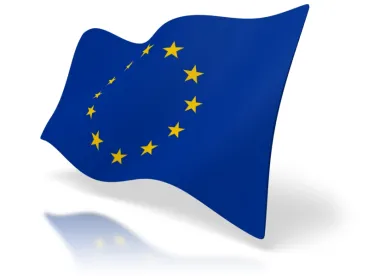EU Policy and Regulatory Newsletter
ANTITRUST AND COMPETITION
New Dawn Raids in the Luxury and Fashion Sector in the European Union
On 18 April 2023, the European Commission (Commission) conducted unannounced inspections (i.e., dawn raids) at the premises of companies active in the fashion and luxury sector in a number of EU member states including Italy. The Commission officials were accompanied by their counterparts from the relevant national competition authorities of the EU member states where the inspections were carried out. The Commission conducted the dawn raids on the basis of suspicions that the targeted companies may have violated Article 101 of the Treaty on the Functioning of the European Union prohibiting anticompetitive agreements between companies.
At this stage, no conclusions can be drawn on the outcome of the investigation. The dawn raids represent a preliminary investigative step into suspected anti-competitive practices and do not prejudge the outcome of the investigations. Should the Commission come to the view that competition law has been infringed, it will open formal proceedings and the investigated companies may face fines up to 10% of their worldwide group turnover in the last financial year. However, should the companies involved decide to cooperate with the Commission, they may obtain fine reductions. In particular:
- For cartel conduct: The investigated companies may apply for a fine reduction under the leniency program. The leniency program may grant full immunity to the company acting as a whistleblower of the restrictive activity, provided the Commission was not already investigating it. However, companies that are already under investigation may still obtain fine reductions between 30%–50% for the first applicant, 20%–30% for the second applicant, and 20% for the subsequent applicants - subject to providing the Commission with sufficient evidence that represents added value to the investigation. Also, the Commission may enter into a settlement procedure with the companies, which, if successful, may lead to up to 10% fine reduction.
- Noncartel conduct: Based on the recent Commission decisional practice concerning, inter alia, certain fashion brands, the cooperation procedure allows for fines reductions in the range of 40%–50%.
Over the last few years, fashion brands have experienced significantly increased antitrust risk in Europe. The Commission previously fined two global fashion brands for restricting cross-border sales by banning traders from selling licensed merchandise to other countries within the EEA, and restricting retailers from online advertising and selling to consumers in other EU member states, respectively. It also carried out dawn raids in the fashion industry last year. The Commission has been keen to stress that this new wave of dawn raids is unrelated to its dawn raids of last May. While the full ramifications of this increased scrutiny remain to be seen—including whether the Commission will decide to open an investigation as a result of its dawn raids—luxury and fashion companies need to factor this unprecedented increased antitrust risk enforcement into their compliance programs and protocols.
DIGITAL AFFAIRS
European Parliament’s Committees Adopted Position on the Artificial Intelligence Act
On 11 May 2023, six months after the Council of the European Union (Council) finalized its position, the European Parliament (Parliament)’s Committee on the Internal Market and Consumer Protection and the Committee on Civil Liberties, Justice and Home Affairs jointly adopted compromise amendments to the Artificial Intelligence (AI) Act by a large majority (84 in favor, 7 against, 12 abstained).
The text defines an AI system as “a machine-based system that is designed to operate with varying levels of autonomy and that can, for explicit or implicit objectives, generate outputs such as predictions, recommendations, or decisions that influence physical or virtual environments.” With regard to generative AI, members of the Parliament (MEPs) agreed that the training data covered by copyright law should be provided in a “sufficiently detailed summary.”
While the initial proposal of the AI Act categorized every system that fell into certain critical areas or use cases listed in Annex III as high risk, MEPs changed the text so that high-risk categorization is not automatic. The new text proposes that high-risk categorization is applicable where the AI system poses a significant risk of harm to the health, safety, or fundamental rights of natural persons.
To ensure transparency, the text states that affected persons should always be informed that they are subject to the use of a high-risk AI system when deployers use a high-risk AI system to assist in decision-making or to make decisions related to natural persons. The text also creates an obligation for those deploying a high-risk system in the European Union to carry out a fundamental rights impact assessment, which will include a consultation with the competent authority and stakeholders (including, to the best extent possible, representatives of the persons or groups of persons that are likely to be affected by the high-risk AI system).
Additionally, prohibited practices were extended to include AI models for biometric categorization, predictive policing, and scraping facial images for building databases. Finally, emotion recognition software would be forbidden in law enforcement, border management, workplaces, and educational institutions.
The Parliament plenary vote is scheduled to debate the text during the 12–15 June session. The vote in plenary is expected to take place after the debate. The vote will be followed by interinstitutional negotiations on the final version of the text with the Council and the Commission.
The European Commission Adopts Detailed Rules on Implementation of the Digital Markets Act
On 14 April 2023, the Commission adopted its Implementing Regulation (EU) 2023/814 on detailed arrangements for the conduct of certain proceedings by the Commission pursuant to the digital markets act (DMA) (Implementing Regulation).
The Implementing Regulation lays down detailed arrangements in relation to:
- The form, content, and other details of notifications and submissions under the DMA to the Commission, including the mandatory notification by businesses that meet the thresholds to be designated as a gatekeeper.
- Proceedings pursuant to Article 29 of the DMA against gatekeepers that fail to comply with their obligations under the DMA.
- The exercise of the right to be heard and the rules on access to the file.
- Time limits for proceedings.
Notably, with respect to the form and content of notifications, Annex I of the Implementing Regulation contains the so-called “Form GD” to be used by businesses to notify the Commission that they meet the thresholds to be designated as gatekeepers. That notification must be no longer than 50 pages. Page limits of between 30 and 50 pages will also apply for a number of other submissions, which may be made to the Commission under other provisions of the DMA, such as replies to preliminary findings.
Finally, the Implementing Regulation ensures that information and documents collected or obtained by the Commission will not be disclosed to third parties or made accessible in so far as they contain business secrets or other confidential information.
These procedures apply as of 2 May 2023, the same day the majority of the DMA’s provisions became applicable.
Digital Services Act: The European Commission Designates First Set of Very Large Online Platforms and Search Engines
On 25 April 2023, the Commission adopted its first designation decisions under the digital services act (DSA), designating 17 very large online platforms (VLOPs) and two very large online search engines (VLOSEs) that reach at least 45 million monthly active users. The designation process was based on the number of active users in the European Union, which the platforms had to publish by 17 February 2023. As a result, VLOPs and VLOSEs will now need to comply with the new obligations outlined in the DSA within four months from their designation.
In addition to the cumulative obligations applicable to all online platforms, VLOPs and VLOSEs are subject to the most stringent obligations in the DSA, which include, inter alia:
- Identifying, analyzing, and assessing any systemic risks in the European Union stemming from the design or functioning of their services and their related systems, including algorithmic systems, or from the use made of their services.
- Redesigning their services and interfaces to mitigate these risks.
- Establishing a public and searchable online repository of their advertisements and related information.
- Providing the Commission with access to data that is reasonably necessary to monitor and assess their compliance with the DSA.
- Establishing a compliance function, which is independent from their operational functions and composed of one or more compliance officers, including the head of the compliance function. The compliance function shall monitor the compliance with the DSA.
- Being subject, at their own expense and for at least once a year, to independent audits to assess compliance with the DSA.
- Paying the Commission an annual supervisory fee.
The designated platforms and search engines must now adapt their systems and processes for compliance and report to the Commission their first annual risk assessment. The Commission will have direct supervision and enforcement powers on the VLOPs and the VLOSEs, and it will also have the power to impose fines up to 6% of the total worldwide annual turnover of a service provider of VLOPs and VLOSEs.
ECONOMIC AND FINANCIAL AFFAIRS
The European Commission Publishes Long-Awaited Retail Investment Strategy
On 24 May, the Commission adopted the retail investment strategy (RIS), with the objective to provide citizens with appropriate safeguards and empower them to invest for the long term in EU capital markets.
The package includes two legal texts: (i) a proposal for an omnibus directive that revises the EU Markets in Financial Instruments Directive II, the Alternative Investment Fund Managers Directive, the Solvency II Directive, and the Insurance Distribution Directive; and (ii) a proposal for a regulation amending the regulation on key information documents for packaged retail and insurance-based investment products (PRIIPs).
The RIS proposes the following measures to enhance retail investors’ trust and confidence in EU capital markets:
- Improve the individual information provided to retail investors by modernizing disclosure rules: The Commission proposes to improve disclosure rules by adapting them to the digital age as well as making them more transparent.
- Improve product governance rules: The Commission proposes measures to provide better “value for money” to retail investors. In this context, the RIS sets stronger requirements regarding the rules on pricing processes for packaged retail and PRIIPs. Pricing rules for undertaking for collective investment in transferable securities management companies and alternative investment funds managers will also be revised to include strengthened value for money rules and to clarify what costs are due.
- Address conflicts of interest created by inducements: After many months of debate, the RIS does not include a full ban on inducements. The proposal only bans inducements for sales of investment products where no advice is provided. However, for sales where advice is provided, the currently used criteria will be replaced by a test specifying the duty for advisors to act in the best interest of the client. Moreover, where inducements remain allowed, the proposal requires distributors to provide information to their clients on inducements, as well as their costs and impact on investment returns.
- Ensure better investment decision-making: The RIS puts forward new requirements for distributors when assessing the suitability of a recommendation or the appropriateness of a financial product for the retail investor (e.g., under the RIS, distributors will have to provide a suitability report to clients sufficiently prior to the conclusion of the transaction).
- Improve marketing communication on financial products and services: The new text requires marketing of financial products and services to be fair, clear, and not misleading, including when provided via digital channels and financial influencers.
- Improve financial literacy: The RIS introduces new provisions for EU member states to act in the area of financial literacy, and it encourages them to introduce national measures to support the financial education of retail investors.
- Reduce administrative burden to access products and services for sophisticated investors: The Commission proposes a revised eligibility criteria for professional investors upon request by, for example, lowering some of the existing monetary thresholds.
- Improve cross-border supervision and enforcement: The RIS seeks to improve cooperation between national competent authorities by improving the process of cooperation of “home” and “host” national competent authorities to ensure effective supervision of cross-border service providers.
ENERGY
First Call Is Launched for Companies to Jointly Purchase Gas Under the EU Energy Platform
On 25 April 2023, the Commission launched joint gas purchasing at the EU level through the EU Energy Platform. Following a mandate from the Council, the EU Energy Platform was created in April 2022 and further developed by the Commission in October 2022 (as previously reported in our Brussels Regulatory Brief of November 2022) as the European Union’s solution to diversify away from Russian gas.
As a key facet of the EU energy platform, AggregateEU, the European Union’s aggregator of gas demand, aims to guarantee sufficient gas supplies by reducing the threat of EU gas buyers outbidding each other on the global market. AggregateEU also aims to replace Russian gas with dependable alternatives. Demand aggregation and joint purchasing will be set up through a secure online platform, accessible only to companies established in the European Union, plus Albania, Bosnia and Herzegovina, Kosovo, North Macedonia, Georgia, Moldova, Montenegro, Serbia, and Ukraine.
Gas companies and gas-consuming companies can register and subscribe to the AggregateEU services throughout 2023. The AggregateEU mechanism will then match the collective European demand with offers from international gas suppliers on the contractual terms for the purchase and delivery of gas.
Tenders will be conducted every two months over the next 12 months, with the first purchase agreements expected before summer 2023.
TRANSPORT
Fit for 55: EU Institutions Reach Political Agreement on the ReFuelEU Aviation Proposal
On 26 April 2023, the Parliament and the Council reached a provisional political agreement on the regulation aimed at ensuring a level playing field for sustainable air transport, also known as the ReFuelEU Aviation proposal. This proposal was first announced by the Commission as part of the measures of the Fit for 55 package in July 2021.
The agreement reached by the EU institutions marks the last step of the Fit for 55 package transport proposals, since agreements had already been reached on updated rules on emissions trading in the aviation sector and in the maritime sector, on promoting sustainable fuels for shipping, and on the accelerated deployment of alternative fuels infrastructure.
The ReFuelEU Aviation proposal aims at harmonizing the rules on the uptake and supply of sustainable aviation fuels, and it will apply to aircraft operators, airports, and aviation fuel suppliers. In fact, the new rules` objectives are to increase both demand for and supply of sustainable aviation fuels and to ensure a level playing field across the EU air transport market.
The new rules set forth the following requirements:
- They will require aviation fuel suppliers to supply a minimum share of sustainable aviation fuels at EU airports, starting at 2% of overall fuel supplied by 2025 and reaching 70% by 2050.
- The new EU jet fuel blend will need to contain a minimum share of the most modern and environmentally friendly synthetic fuels, which increases over time. In relation to aircraft operators, these rules will require departing from EU airports to refuel only with the fuel necessary for the flight, to avoid emissions related to aircraft operators carrying extra weight or carbon leakage caused by “tinkering” practices (when deliberately carrying excess fuel to avoid refueling with sustainable aviation fuels).
- The new rules will require airports to ensure that their fueling infrastructure is available and fit for sustainable aviation fuels distribution.
The new rules also introduce reporting obligations for fuel suppliers and aircraft operators, rules on the competent authorities to be designated by the EU member states to enforce this regulation, and rules on potential fines.
The political agreement now awaits formal adoption by the Parliament and the Council. The new regulation will then be published in the Official Journal of the European Union, will enter into force, and will be binding in its entirety and directly applicable in all EU member states.
Additional authors Dr. Michael Hofmann, LL.M., Stefano Prinzivalli Castelli, Vittoriana Todisco, Matilde Manzi, Mélanie Bruneau, Rebecca Halbach







 />i
/>i

